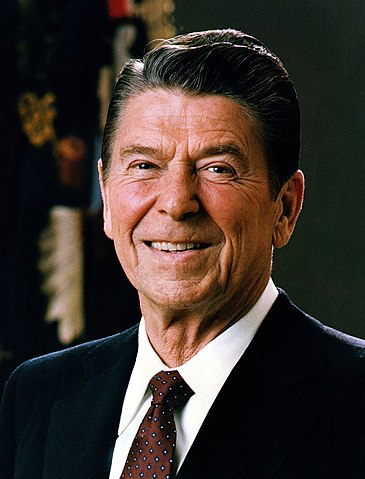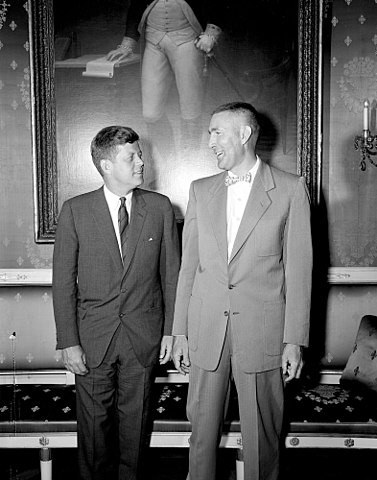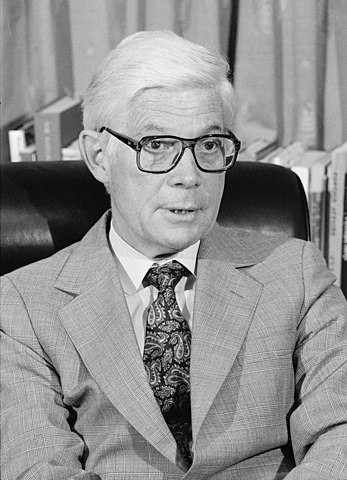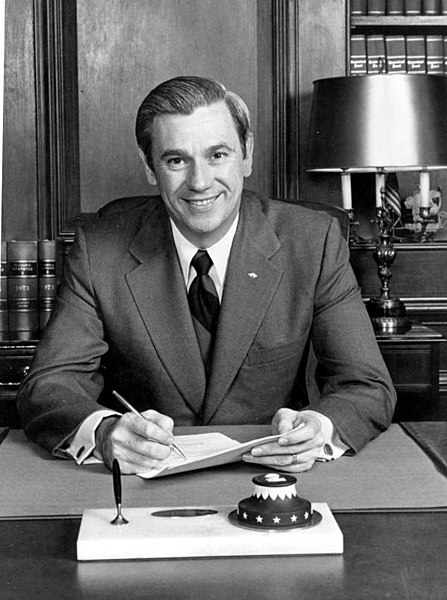PROLOGUE VI: The Reagan Administration- Shahfall & Oil Crashes
Kick
PROLOGUE VI: The Reagan Administration- Shahfall & Oil Crashes

Shah and his wife, Shahbanu Farah leaving Iran on 16 January 1979
1979 came in with further troubles and turbulations. Discussions over the next wave of the SALT Treaties have stagnated though not out of disagreement from the Americans or the Soviets, but more out of the troubles going on with the Reagan Administration. The Soviets were content to take their time on this though as seeing more chaos on the Americans' end had them beginning to reconsider certain approaches. Afghanistan could've become a mess if interactions with the PDPA went horribly awry. Fortunately, they got the message pretty clear and could influence their neighbor without the need of invasion. Additionally, the rumors of potential talks between the United States and Communist China have also somewhat stagnated on that front as well; the Reagan administration had refused to fully recognize Communist China and they maintained their focus over on Taiwan though such discussions were overall part of President Reagan's seeming slowing down of diplomatic affairs. Likely as they were still trying to focus on Central America. By now, the rallying effect was gone and folks were not wanting to see their menfolk die defending a damaged canal built on land that was only theirs by technicality and in a war influenced by their leader's stubbornness. Especially since it meant having to deal with greater inflation on items. People were becoming more frugal in how they spent money and looking for ways to get by, while others were demanding for government assistance on programs that could help deal with the matters.
Shah and his wife, Shahbanu Farah leaving Iran on 16 January 1979
However, Reagan did continue on and his focus on certain domestic affairs would lend assistance. He would send federal funds to assist in bailing out the Three Mile Island Nuclear Generating Station during its partial meltdown. He doubled down on the important of nuclear energy for a more prosperpous tomorrow and it was noted for being an instance of helping out. This did win him some broad sense of bipartisan support and Reagan's emphasis on no deaths nor sicknesses helped ease it, despite the accident giving some more energy over to those opposed to nuclear power. At one point, Reagan even noted that there were few if any viable and practical options that could be implemented and nuclear power would assist in the creation of more jobs and reliable power. His steadfast stance here would end up winning out and gaining some form of points. The construction of many future nuclear power plants were not halted though merely slowed down or temporarily suspended at most to review the damage within the accident and figure out how to improve from it. It was a much needed boost, especially with the oncoming tide of the 1980 election.
However, it would not be enough for what was to come. Revolution had come into Iran.
After years of oppression and his autocratic rule, the Shah would finally be ousted. Massive protests and outcries were led over by various prominent individuals such as Mehdi Bazargan would rise up in prominence to get the Shah to step down, with a number of various factions rising to help be the dominant influence over for the sake of power and influence. Many of the parties and organizations that had prepared for this day came together. The National Front would form a coalition many groups, even with the Pan-Iranist Party and the Freedom Movement of Iran. Others, like the Tudeh, were more like co-belligerents, but after a massive wave of protests, the monarchy would finally fall and a new day would rise in Iran. Iran was now a parliamentary republic, its first leader being Mehdi Bazargan. He would serve as Iran's first Prime Framadār (a cultural homage to the original Pre-Islamic/Sassanian role of wuzurg framadār, which would be described as equivalent as a Grand Vizier or Prime Minister, chosen to showcase the long and rich history of Iran) with the National Front and Freedom Movement forming a coalition government. While there was some concerns that the nation would've gotten theocratic elements, especially by some of the clergyfolk pushing, others pushed back, believing in the seperation of church and state, with one big name for that was Hussein-Ali Montazeri, a promiennt student of Khoimeni and rather liberal-minded, thus lending him enough influence to help for it.
The rammifications were unsurprisingly enormous. Even before the Revolution itself, the massive protests and strikes caused another oil shockwave, leading to the 1979 Oil Crisis, giving another jolt of agony over for the economy, still shaken up by the Panama Canal's condition. It created greater unrest and conditions amongst the populace and the demand for the government to do something grew louder. This stood in staunch contrast to Reagan's words regarding on government, which would be turned against him as his approval ratings plummeted further still. The Reagan administration meanwhile couldn't do anything regarding Iran. They could try sanctions, but they were unlikely to pass Congress and the new government did not espouse any anti-American rhetoric. Earlier that year, there was speculation on regarding whether the Shah be admitted into Iran or not for medical treatment, despite the clamoring for him to face justice in Iran by the people. However, the deadlocked situation and disagreements meant a decision was not made in time with the Shah going elsewhere. The Reagan adminsitration and the Republican party in fact had their fractures grow wider because of this and the neoconservatives that were originally seen as the new way of doing things was now in mortal danger within the party as the other factions sought to have them be voted out, lest they permanantly poison the party's reputation.
The Middle East meanwhile watched with shock at what happened, with some preparing for their own plans. Saddam Hussein began preparing for potential plans of an invasion to assert himself over his neighboring state though was also cautious as he did not know how strong the new Iranian government actually was. For others, the lack of success from the hardline conservatives was a blow to their prestige and potential influence. This would be notable as in 1979, another incident occurred, this time over in Saudi Arabia... someone seizing the Grand Mosque. The Grand Mosque seizure occurred during November and December 1979 when extremist insurgents calling for the overthrow of the House of Saud took over Masjid al-Haram, the holiest mosque in Islam, in Mecca, Saudi Arabia. The insurgents declared that the Mahdi (the "redeemer of Islam") had arrived in the form of one of their leaders – Mohammed Abdullah al-Qahtani – and called on believers to obey him. The seizure of Islam's holiest site, the taking of hostages from among the worshippers and the deaths of hundreds of militants, security forces and hostages caught in the crossfire in the ensuing battles for control of the site, shocked the Islamic world. The siege ended two weeks after the takeover began and the mosque was cleared. Saudi special forces aided by American commandos were the ones who retook the site. While the joint operation did help bring a brief bit of support for the Americans and those in the Muslim World, the question remained on what now and why. However, one important note was on the discussion between President Reagan and Saudi King Khaled. Khaled had orginally considered that "the solution to the religious upheaval was simple: more religion" and considered giving the ulama and religious conservatives more power over time due to their hostilities at the growing liberalization. President Reagan however insisted on the opposite. This was not a religious upheaval, but a terrorist attack. No true believer would ever invade their own holy site and follow someone who was claiming they were the savior. As such, these religious hardliners were a threat and should be treated as such against the establishment of a better world. After talks and needling, King Khaled would follow through on Reagan's words and beyond denouncing the attackers, noted on their disgrace and being against the faith. He would begin working to crack down on the religious hardliners and going further with the reforms, with Reagan making arrangements for potential reinforcements. It was a sorely needed sort of victory for the Reagan administration, especially as they were entering 1980.




